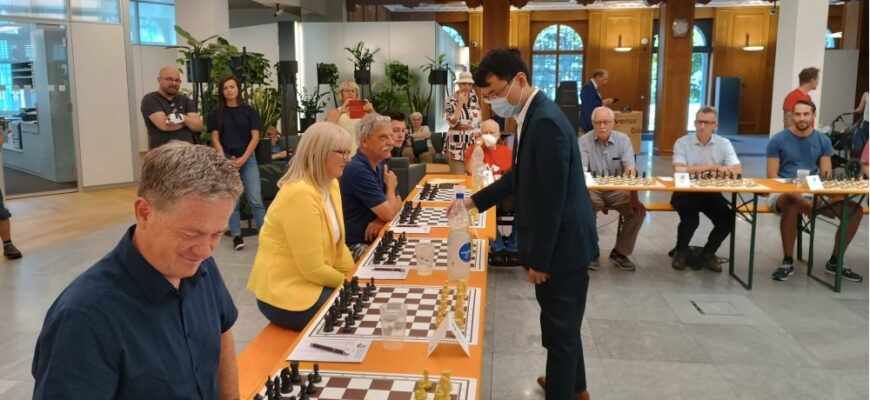The Biel Chess Festival continues to distinguish itself in the international chess scene with its inventive approach to competition. Moving beyond traditional single-format tournaments, Biel has established a unique `chess triathlon` that challenges players across multiple time controls. The 2025 edition carries on this tradition, featuring invited players battling it out in the Masters and Challengers sections.
Tournament Structure: A Three-Legged Race
At the heart of the Biel Festival is its multi-disciplinary format. Six invited players in each of the Masters and Challengers tournaments compete in three distinct phases:
- Classical Chess: The initial stage, played under traditional time controls.
- Rapid Chess: Following the classical games, players switch to a faster pace, often with colors reversed relative to the classical pairing.
- Blitz Chess: The final, most accelerated phase, played as a double round-robin to maximize interactions.
The cumulative points earned across these three formats determine the standings in the qualification phase. This system rewards not just mastery in one area, but overall versatility and adaptability across varying speeds of play.
Scoring System: Points for Every Discipline
The festival employs a weighted points system to reflect the different demands of each time control:
- Classical: A win earns a substantial 4 points, a draw yields 1.5 points, and a loss gets 0 points.
- Rapid: Wins are worth 2 points, draws 1 point, and losses 0 points.
- Blitz: The fastest format awards 1 point for a win, 0.5 points for a draw, and 0 points for a loss.
This structure ensures that while classical chess holds significant weight, strong performances in rapid and blitz are crucial for success in the overall standings.
From Qualification to Final Showdown
The tournament is structured in two main phases. The initial “qualification” phase consists of the round-robin competitions in classical, rapid, and blitz chess. Points accumulated here carry forward into the final phase.
The top players from the qualification phase then advance to a final stage. This typically involves return matches played under classical time controls, though the exact number of finalists depends on the point differentials (usually the top four, potentially fewer if there`s a large gap). Players carry their accumulated points into these final matches, making every game from the very beginning count towards the ultimate title.
Settling Ties: The Chess960 Twist
In a nod to pure chess skill unburdened by opening theory memorization, any ties in the final standings are broken by a Freestyle Chess (also known as Chess960) opening tournament. This adds another layer of excitement and unpredictability, ensuring the champion is truly the most adaptable player.
The Rapid Section is Underway
With the classical games completed, the focus has now shifted to the rapid portion of the festival. Players are navigating the faster time controls, where quick calculation and sharp tactical awareness are essential. Early results in the rapid rounds are starting to shape the middle stages of the competition, adding intrigue to the cumulative points race.
The Biel Chess Festival`s `chess triathlon` format provides a comprehensive test of a player`s abilities across the full spectrum of competitive chess. As the rapid section progresses and the event heads towards the blitz and classical finals, the path to victory requires consistency and excellence in every format.







